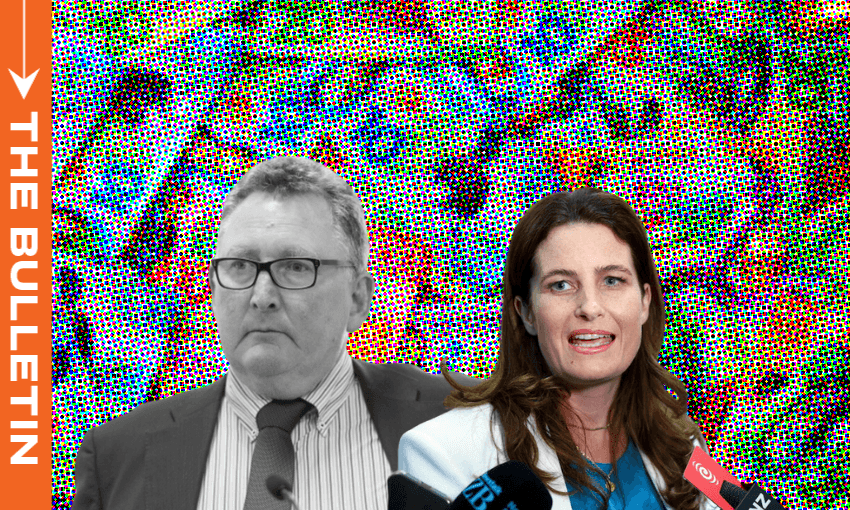The Bulletin’s Stewart Sowman-Lund on the good and the bad as we race towards 2025.
To receive The Bulletin in full each weekday, sign up here.
Cash rate cut
As widely predicted, the Reserve Bank confirmed yesterday that it will reduce the official cash rate by 50-basis points down to 4.25%. It’s the third consecutive drop in the OCR, and the second time in a row that it’s been slashed by 50 points. In response, reported 1News, several major banks immediately cut their loan rates in what will be welcome pre-Christmas relief for homeowners. It takes the cash rate down to its lowest level since November 2022, which was after the economic hit of the Covid-19 lockdowns and right in the midst of the cost of living crisis. The government was quick to celebrate the news, reported RNZ’s Gyles Beckford, with finance minister Nicola Willis claiming the positive economic update was a consequence of sound fiscal management over the first 12 months of this parliamentary term. “We are headed in the right direction,” she said.
But while there might be an instant sugar hit for mortgage holders, the Reserve Bank warned that “the thrill might not be as big as what it looks like”. In analysis for the Herald (paywalled), Jenée Tibshraeny explained that factors other than the OCR can impact interest rates and geopolitical issues – including the outcome of the US election – were putting upward pressure on the market.
‘We remain cautious’
As such, all eyes are on the road as yet untravelled. The Reserve Bank said that if the economy continued to track as expected, it would be in a position to make further cash rate cuts in the new year, reported The Post’s Tom Pullar-Strecker. And while its forecasts were in line with another 50-basis point reduction come February, it was now predicting the economy will grow only 2% in the year to March 2026 and 2.4% the following year. Kiwibank’s chief economist Jared Kerr was among those casting doubt on whether the Reserve Bank would make further 50 basis point cuts. “We remain cautious. Because we believe rates needs to be cut lower than the RBNZ’s 2025 forecast track to stimulate an economy struggling to get out of recession. And the real time data is still mixed at best.”
Later this morning, Reserve Bank leaders will appear before parliament’s Finance and Expenditure Committee to face scrutiny from MPs.
Word of the day: volatility
As noted above, the government has quickly claimed credit for the latest announcement. But it may not be so fast to celebrate should the wider outlook not improve. Writing for The Post, Luke Malpass noted that poor productivity remained the biggest drag on growth, though this isn’t just a localised issue. “But it is clear that when it come to both economic growth and inflation in the new year the watchword will be ‘volatility’,” wrote Malpass. In an interview with Thomas Manch to mark one year of the coalition government, deputy prime minister Winston Peters criticised National’s tax cut package for having “no material or beneficial effect in terms of growth in the economy”. Peters believed now was the time for prudent spending rather than further cuts, something we will likely have to wait until the next budget to hear about.
Writing for his Politik website, Richard Harman questioned whether a blowout in health spending coupled with a reduced tax intake could delay the government’s forecast return to surplus. Finance minister Nicola Willis has previously claimed the books would be back in shape by 2027-28, but Harman said this was now at risk. But: “As Luxon essentially claimed victory over inflation yesterday he didn’t sound like a prime minister preparing the ground for an austerity budget.”
Unemployment still rising
Meanwhile, the Reserve Bank also forecast that unemployment would continue to rise. The NBR’s Jonathan Mitchell reported (paywalled) that the central bank believed unemployment would peak at just over 5% early next year.
A new round of public sector cuts have been reported this week, with Te Whatu Ora said to be getting rid of almost 1,500 jobs, wrote Stephen Forbes for NZ Doctor (paywalled). That figure came from the Public Service Association, though about 700 of the roles were already vacant due to a recruitment freeze. The PSA said that the cuts include a net of 1,120 roles to be axed from the data and digital group and a net of 358 roles from the National Public Health Service. The health agency has disputed the figures, reported RNZ’s Lauren Crimp, saying the proposed net loss from the National Public Health Service was actually 57.
